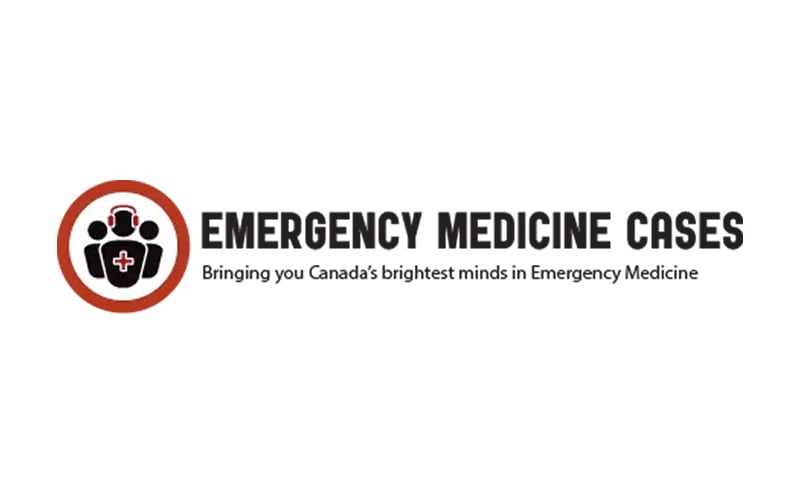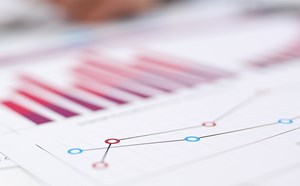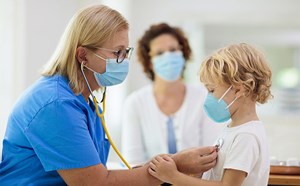
WTBS 21 The COVID-19 Outbreak Part 2: Emergency Medicine’s Coming of Age
Seize the day
In part 1 of this blog I shared some personal reflections on how to acknowledge and control our fears in order to move ourselves to constructive action in the time of a pandemic. I suggested a two-pronged approach: Seek out the best evidence to inform a rational assessment of risk and embrace your role—your mission—in this fight.
In part two Dr. Bjug Borgundvaag, my good friend and colleague at Mount Sinai Hospital in Toronto, Canada, will expand on the mission aspect of the pandemic and explain why this might just be the best moment ever to be an emergency physician.
—Dr. Howard Ovens, April 2020
Amid the darkness of a pandemic, COVID-19 shines a light on everyday heroism
“Courage is not the absence of fear, but rather the assessment that something else is more important than fear.”
―Franklin D. Roosevelt
The COVID-19 pandemic has caused a wave of fear and anxiety around the globe. It is eerily reminiscent of the 2003 SARS epidemic, which Dr. Ovens described in part 1 of this blog. Now, as then, emergency providers are on the front lines of health care delivery and are subjected to the greatest exposure—and risk.
Yet despite the doom and gloom, my view of the pandemic has transformed as the situation has evolved. No one would wish for this tragedy, but given that it is our job to manage it, I have come to see COVID-19 as an unprecedented opportunity for the discipline of emergency medicine.
Like world wars and natural disasters, pandemics are moments in history that alter us. They catalyze change in the way we work and live, the way our governments and societies operate, and, in this case, the way health care is delivered. Amid all this disruption, the profile of our relatively young specialty is being raised in a new way that could shape the future and produce lasting benefits for both care providers and patients.
Unprecedented goodwill
Stanford social psychologist Philip Zimbardo defines heroism as “concern for other people in need—a concern to defend a moral cause, knowing there is a personal risk, done without expectation of reward.”[1] Is it fair to call emergency care providers heroes? I think so. In our department, people continue to come to work, they contribute to figuring out how to care for our patients without endangering themselves, they remain positive, and they are not only willing but eager to use their special skills to provide care for our patients under extreme circumstances. Yesterday I saw a familiar pair of eyes above a face mask, and I realized it was one of our nursing staff who has been going to school in Germany for the past four years. Knowing what her friends and colleagues back home were going through, she returned to Canada to work in the ED with us. That sounds like a hero to me by any definition.
At the same time, emergency medicine is a young discipline. Since its inception we have struggled to earn the respect of our colleagues and policymakers. We have struggled to earn fair pay and to have a seat at the table when important decisions are made regarding the allocation of health care dollars and research funding. Although we are doing what we have always done, I believe we should use this new “hero status” to draw attention to the incredible work we do and leverage it to advance our cause.
COVID-19 has inadvertently handed us a moment in time where we have the unprecedented goodwill and attention of the public, our colleagues, and our federal and provincial governments. In 26 years of practice spanning SARS, Ebola, H1N1, and other many other events, I have never before seen emergency physicians featured as invited experts on national news broadcasts every night. I have never had as many unsolicited e-mails, text messages, and social media posts from friends, family, and patients as I have recently, even from complete strangers, thanking me—all of us—for what we do. Every evening at 7:30 p.m., amid the clanging of pots and pans on my street that has become a daily salute to health care workers, all my neighbours join in and wave to me and my daughters as we participate in this salute. It almost brings tears to my eyes every time.
Leadership opportunities
So, after all the thank-yous, what can we as emergency physicians do to have a positive impact on this situation? For starters, we should continue to show up for work with a positive attitude, ready to contribute to the care of our patients. We should view ourselves as the leaders we are and conduct ourselves accordingly.
While discussing this essay with a colleague on duty in the ED, they were taken aback by my optimistic message and outlook. They said it was the first time anyone had expressed any positive thoughts about what we are going through, and they found it uplifting. COVID-19 is going to be with us for a long time. It is not clear what the “new normal” will be, but the risk of acquiring COVID-19 at work is a fear that will need ongoing management at least until a vaccine becomes available. We cannot allow ourselves to feel defeated or overwhelmed. We need to take care of one another. Check in with your colleagues, and when you have time to listen ask them how they are feeling. No one has all the answers to what is going on, but the simple act of sharing worries and fears can have a powerful impact on mood and anxiety.
Administratively and academically, we should take advantage of every leadership opportunity COVID-19 has provided. Your hospital administrators and many others with decision-making capacity need your help to understand how ED care is delivered and how it can be improved. For those of you with academic roles, there are many grant calls and other opportunities to initiate or contribute to the generation of new knowledge on the best ways to manage emergency services and provide care during a pandemic. Your contributions now will have an enormous impact on our discipline in the future.
This is our time
COVID-19 is a challenging and difficult time for everyone, with many things beyond our control. But we can choose how we respond to this challenge. While I was writing this piece, the table of contents for the Annals of Internal Medicine landed in my inbox. The title of this issue’s “On Being A Doctor” article was “COVID-19: The Worst Days of Our Careers.”[2] I see things differently.
For emergency physicians, I sincerely believe that this is our time. We are doing what we have been trained to do, and what we do for the most part every day at work. In the past many of us have worked under similar conditions with organizations such as Medicine Sans Frontiers. Now it is our patients at home who need our wisdom and skills more than ever. We have the spotlight. Our neighbours are cheering for us. Our governments are asking for our help. I am confident that together we will rise to the challenge.
—Dr. Bjug Borgundvaag is the Director of the Schwartz/Reisman Emergency Medicine Institute at the Sinai Health System, and a clinician scientist in the Department of Family and Community Medicine at the University of Toronto.
Dr. Borgundvaag and Dr. Ovens have no conflicts of interest to declare.
References
- Zimbardo P. What makes a hero? Presented at the Greater Good Science Center, January 12, 2011; Berkeley, CA. facinghistory.org/rescuers/philip-zimbardo-what-makes-hero. Accessed April 13, 2020.
- Cunningham CO, Diaz C, Slawek DE. COVID-19 The worst days of our careers. Ann Int Med. April 13, 2020. Available from: www.acpjournals.org/doi/10.7326/M20-1715. Accessed April 13, 2020.
By Dr. Howard Ovens|April 21st, 2020|Categories: COVID-19, EM Cases, Emergency Medicine, Medical Specialty, Waiting to be Seen|Tags: COVID, COVID-19, Dr. Bjug Borgundvaag|1 Comment


